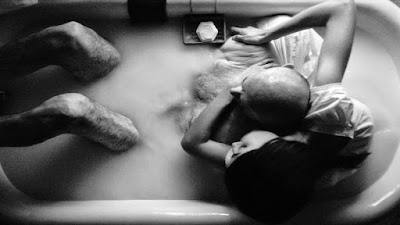Saturday, 25 March 2017
The Eyes of My Mother - Review
Nicolas Pesce's debut effort, The Eyes of My Mother, is an especially depraved take on the coming of age tale, brimming with detached grace, Pesce imbues every gorgeously composed scene with an oppressive atmosphere of dread. The film follows the perverted deeds of Francisca, chopping the events into three enigmatically titled acts, "Mother", "Father", and "Family. The lean narrative begins with Francisca witnessing the brutal murder of her mother, progressing from this with what seem to be a series of attempts to recreate what she lost. Despite her psychopathic disregard for suffering, we are able to sympathise with her on some level; there is something universal about the yearning for human connection that appears to drive her.
What is most striking about the film is its cinematography, shot in the moodiest monochrome you can imagine, the shots are lit with the brooding intensity of a Bergman film. At times, its style reminded me of Pawlikowski's Ida, functioning more as a series of beautiful photographs that happen to contain movement than a film. As we transition from one remarkably heady image to another, the flair that Pesce and his cinematographer Zach Kuperstein have for visually arresting composition is clear to see. Highlights include a landscape where Francisca and her father are silhouetted against some tall grass by the light of a lantern and an aerial shot that shows the two consumed by the milky water of a bathtub.
However, these images have more to offer. When depicting scenes of extreme violence that practically stray into the world of torture porn, the elegantly removed beauty of the visuals contrasts strangely with the savagery being shown, amplifying the sense of intense disquiet. This is also added to by Pesce's carefully framed and often static shots that, coupled with excellent performances from Olivia Bond and Kika Magalhaes, tell us far more than the pragmatically minimalist script. Indeed, when we see the wide eyed gaze of a young Francisca, it betrays some inner turmoil and an outstretched hand that caresses an empty bed expresses a profound loneliness.
Particularly impressive is the performance of Magalhaes whose portrayal of a young woman tortured by her solitude is oddly touching. Her whole perspective on the world seems to be warped by the brutal trauma of her formative years, we see a woman almost trapped in her childhood. This theme is nicely alluded to by the recurring presence of a doll; even in the second two acts when Francisca has grown up, it is oddly prominent, appearing in the corner of frames, suggesting that she is yet to have grown past this stage. Despite this facet to her performance, her presence is still utterly chilling. In fact, I found this layer of innocence to add to the menace; when she calmly informs a guest that she murdered her father, the unassuming confusion at her guest's response is unnerving.
The way in which Pesce unloads both the emotional trauma and physical brutality of the events that unfold is unwavering, the grimly unrelenting mood that hangs over the film is compelling yet certainly not for the faint hearted. There are some points - particularly in the third act when things are really turned up to eleven - that the intense cruelty coupled with deep melancholia became a bit much for my gentle spirit. Though it perhaps seems unfair to criticise the film for this (it is a horror film), some variation from the fiercely macabre tone would have been appreciated. Regardless, The Eyes of My Mother delivers a beautifully crafted art house version of horror that stays with you, certainly a welcome break in the era of the jump scare.
Subscribe to:
Post Comments (Atom)

No comments:
Post a Comment